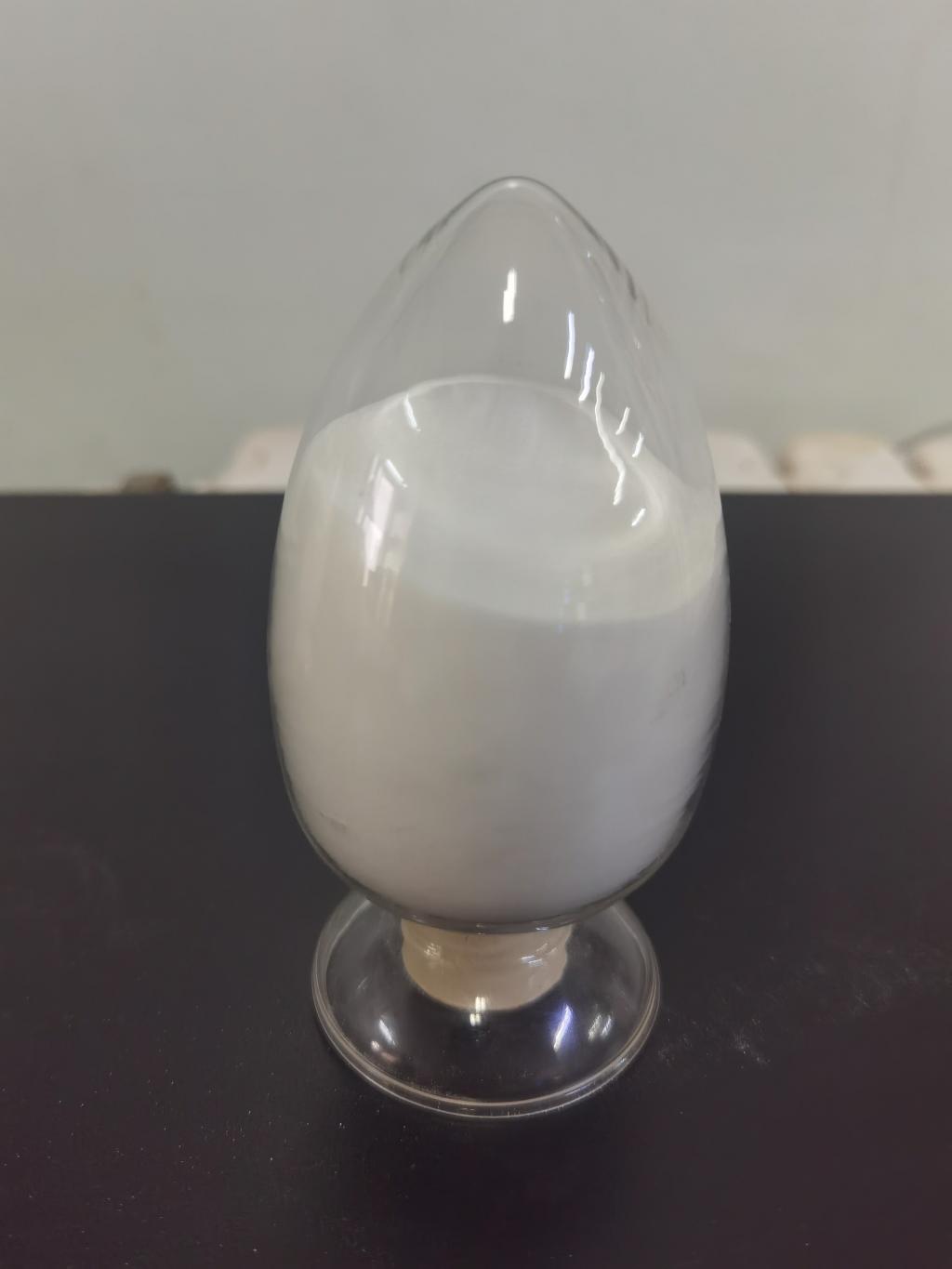Tel:+8618231198596

News
 CONTACT
CONTACT
 CONTACT
CONTACT
- Linkman:Linda Yao
- Tel: +8618231198596
- Email:linda.yao@dcpharma.cn
- Linkman:CHARLES.WANG
- Department:Overseas
- Tel: 0086 0311-85537378 0086 0311-85539701
News
Current Position:
Home >
News
>Beyond Food: ε-Polylysine Hydrochloride's Potential Developments in Biotechnology
Beyond Food: ε-Polylysine Hydrochloride's Potential Developments in Biotechnology
TIME:2023-12-05
Introduction:
While ε-Polylysine hydrochloride has made significant strides in the food industry as a natural antimicrobial agent, its potential reaches far beyond the realms of food preservation. Biotechnology, with its interdisciplinary approach, offers a fertile ground for exploring novel applications of ε-polylysine hydrochloride. This article aims to unravel the diverse and promising developments in biotechnology that involve ε-polylysine hydrochloride, showcasing its versatility and transformative potential.
Medical Applications:
Antimicrobial Coatings for Medical Devices:
ε-Polylysine hydrochloride's inherent antimicrobial properties make it an attractive candidate for coating medical devices. From catheters to implants, the integration of ε-polylysine hydrochloride coatings can mitigate the risk of bacterial colonization, reducing the incidence of infections associated with medical interventions.
Research is ongoing to optimize ε-polylysine hydrochloride coatings, ensuring sustained antimicrobial activity without compromising the biocompatibility of medical devices. The potential impact extends to reducing the need for antibiotic interventions, addressing concerns related to antibiotic resistance.
Wound Dressings and Topical Applications:
In wound care, the antimicrobial action of ε-polylysine hydrochloride holds promise for developing advanced wound dressings. These dressings can create a protective barrier against infections while facilitating the healing process. Additionally, topical formulations incorporating ε-polylysine hydrochloride may find applications in dermatology, addressing conditions where microbial imbalance plays a role.
Clinical studies are exploring the efficacy and safety of ε-polylysine hydrochloride in various topical formulations, opening avenues for innovative solutions in the field of dermatological care.
Drug Delivery Systems:
ε-Polylysine hydrochloride's biodegradability and compatibility with biological systems position it as a potential component in drug delivery systems. The cationic nature of ε-polylysine hydrochloride could facilitate interactions with negatively charged drug molecules, offering a platform for controlled drug release.
Ongoing research aims to optimize ε-polylysine hydrochloride's role in drug delivery, exploring its potential in enhancing the efficacy and specificity of pharmaceutical formulations.
Environmental Solutions:
Biodegradable Packaging:
The biodegradability of ε-polylysine hydrochloride aligns with the global push toward sustainable practices. In biotechnology, ε-polylysine hydrochloride can be explored as a component in biodegradable packaging materials. These materials could help address the environmental challenges posed by traditional packaging materials, contributing to reduced plastic waste.
Research efforts are directed towards understanding the mechanical properties, biodegradation kinetics, and overall sustainability of ε-polylysine hydrochloride-based packaging solutions.
Water Treatment and Filtration:
The antimicrobial properties of ε-polylysine hydrochloride can be harnessed in water treatment and filtration systems. Functionalizing filtration membranes with ε-polylysine hydrochloride may enhance their ability to inhibit bacterial and fungal growth, improving the efficiency of water purification processes.
Pilot studies are underway to assess the feasibility and effectiveness of ε-polylysine hydrochloride in water treatment applications, with potential implications for addressing waterborne diseases.
Bioremediation:
ε-Polylysine hydrochloride's potential in bioremediation, specifically in soil and water cleanup, is an area of growing interest. Its antimicrobial properties could aid in controlling microbial populations in contaminated environments, facilitating the remediation of pollutants.
Field trials and studies are exploring the efficacy of ε-polylysine hydrochloride in bioremediation strategies, contributing to the development of environmentally friendly solutions for contaminated sites.
Biotechnological Innovations:
Biofuel Production:
In the realm of bioenergy, ε-polylysine hydrochloride may play a role in enhancing biofuel production processes. Its antimicrobial action could help control microbial contaminants in biofuel production facilities, ensuring the efficiency and quality of biofuel production.
Collaborative research initiatives are investigating the potential benefits of incorporating ε-polylysine hydrochloride in biofuel production pipelines, aiming to address challenges related to microbial contamination.
Biopharmaceuticals and Biomanufacturing:
ε-Polylysine hydrochloride's role may extend to biopharmaceutical production and biomanufacturing processes. As a component in fermentation media, ε-polylysine hydrochloride can potentially contribute to the control of microbial contaminants, ensuring the robust and reliable production of biopharmaceuticals.
Bioprocessing studies are exploring the impact of ε-polylysine hydrochloride on fermentation yields, product quality, and the overall efficiency of biomanufacturing processes.
Challenges and Considerations:
Optimization of Formulations:
Developing optimal formulations for diverse biotechnological applications is a challenge. The concentrations, combinations, and delivery systems of ε-polylysine hydrochloride need careful consideration to ensure efficacy without adverse effects.
Regulatory Compliance:
Regulatory frameworks for the use of ε-polylysine hydrochloride in non-food applications are evolving. Achieving regulatory compliance is crucial for the acceptance and adoption of ε-polylysine hydrochloride in medical, environmental, and biotechnological contexts.
Interactions with Biological Systems:
Understanding the interactions of ε-polylysine hydrochloride with complex biological systems is essential. In medical applications, ensuring biocompatibility and minimizing potential cytotoxic effects are critical considerations.
Future Directions and Collaborative Research:
Multidisciplinary Collaboration:
The potential developments of ε-polylysine hydrochloride in biotechnology necessitate multidisciplinary collaboration. Biologists, chemists, engineers, and environmental scientists can work together to unlock the full spectrum of applications and address challenges.
Advanced Materials Science:
Collaborative research in materials science can lead to innovations in ε-polylysine hydrochloride-based materials. These materials may find applications in fields such as tissue engineering, where antimicrobial properties are coupled with biocompatibility.
Genetic Engineering for Enhanced Properties:
Genetic engineering approaches may be explored to enhance the properties of ε-polylysine hydrochloride for specific applications. Tailoring its structure or production processes could result in variants with optimized functionalities.
Conclusion:
As ε-Polylysine hydrochloride transcends its traditional role in food preservation, the biotechnological landscape offers a canvas for innovative applications with far-reaching implications. From medical breakthroughs to environmental solutions and biotechnological innovations, ε-Polylysine hydrochloride's potential developments hold the promise of addressing complex challenges and contributing to sustainable and healthier practices across diverse sectors. Ongoing research, collaborative efforts, and a multidisciplinary approach will be instrumental in unlocking the full potential of ε-Polylysine hydrochloride in the dynamic field of biotechnology.
- Tel:+8618231198596
- Whatsapp:18231198596
- Chat With Skype







